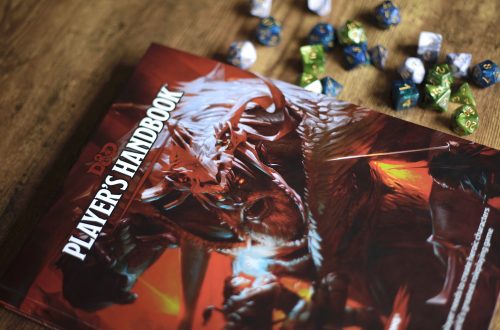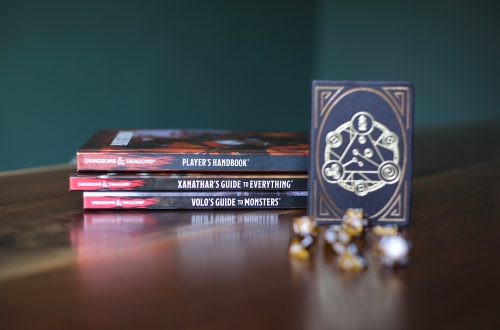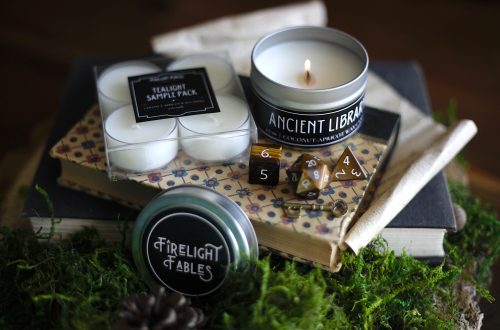How to Find a D&D Group and Start Playing Now
Hey there! This website does contain affiliate links. If you purchase something through this page, Cats and Dice may earn a share of sales from the link. Learn more.
Whether you’re looking for online D&D groups for beginners or are a veteran player in need of another in-person campaign, this guide will help you find the right D&D group for you.
Time and location are the two biggest problems for D&D players looking for a D&D group. And if you’re a beginner D&D player, you might have concerns about knowing the rules. This post addresses all of those concerns. I had the same ones. Turns out, they’re not that difficult to overcome!
For the moment, this guide will assume you are a brand new player by taking the time to explain how each option works and how to focus on new player friendly searches. If this is not relevant to you, feel free to skip to the meat of each category.
.How to Find a D&D Group Offline
There’s no experience quite like playing D&D in the physical presence of your fellow players. Most beginner and experienced D&D players alike prefer to play offline D&D. It is not as easy to find a group, but it is 100% possible.
The Starter’s Set
The official D&D Starter Set might be the best way to play D&D for the first time. It includes a set of dice, premade characters, a basic rulebook, and a game that takes players from Level 1 to Level 5. As a new Dungeon Master, I took a group of brand new players through the game, and it was great. It’s easy for everyone to understand and super affordable.
If you have (or can find) a group of friends who would also like to form a beginner D&D group, this is the perfect way to start. It might not feel like the set finds you a group. But if you tell your friends that you have an easy way to start playing Dungeons and Dragons, you will be surprised how many people are interested in joining. That’s what happened to me.
Local Game Stores or Cafés
A local game store or board game café might be the best place to find an offline D&D group. These locations often offer regularly scheduled D&D nights and are often beginner friendly. They have staff who are well-equipped to teach new players, and they often
Related Post: I Work at a Board Game Café. Here’s What That Means.
Not sure which local game stores (also known as LFGS) offer D&D games? This search from Wizards of the Coast will help you out. You can also try Warhorn for local games and events.
Conventions
Conventions are a great way to find a D&D group either as a new player or a long-time fan of the game. While conventions do require a certain amount of time and money, they also offer an organized way to play the game a lot in a short amount of time. Plus, the people you meet at conventions can lead to new groups that play together online or offline in the future.
To find a convention near you, check out this tabletop gaming conventions map.
Local Listing Boards
Colleges, libraries, and coffee shops are all excellent places to find local listing boards. On these boards, you can find advertising local D&D groups, or you can place your own listing. Similarly, these locations might run their own games through a college D&D club or a similar organization.
How to Find Online D&D Groups
Finding a D&D group online may lead you to online or offline gameplay. While offline gameplay allows you the ease and immediacy of interacting with other players, online D&D groups can offer flexibility and the ability to meet new players.
Social Listings
Social listing sites such as Facebook and Meetup are a great place to find D&D groups online or offline. First, you can search “D&D” plus your location to find a group on any social listing or group site. If that does not lead you to the desired result, try a broader search. For example, search for a Facebook group about D&D in general and chat with the people in that group.
Good Facebook online D&D groups include:
- Dungeons & Dragons 5th Edition
- Tabletop RPG One Shot Group
- Dungeons & Dragons + [Your City]
Roll20.net
Roll20.net acts as an online platform to play D&D and other roleplaying games. The site has a comprehensive search function for players looking for games. When looking for a game, simply click, “Join a Game,” type in your search parameters, and browse the options.
If you’re looking for the most recent version of Dungeons & Dragons, be sure to add, “D&D 5e” to the “Playing Any of These Games” section.
For online D&D groups for beginners, check the “Welcomes New Players” box.
To find a game that meets at a certain time or day, select the “Advanced Search Options” and select the time and day you are looking for.
A note on Free to Play:
Many games on Roll20 are free to play, but some are not. Choosing a free versus a paid game is a matter of preference that comes with pros and cons like anything else.
When you pay to play, you increase the odds of finding a Dungeon Master who can help new players. You might also find workshops to create new characters and learn how to play the game.
“Free to Play,” on the other hand, can lead to varied results. Some groups turn out great, while others not so much.
Related Post: How to Play Tabletop RPGs Online
Forums and Listing Sites
Here’s a short list of forums where you can find online D&D groups:
On these sites, you can start a discussion as a Dungeon Master. Alternatively, you can respond to Dungeon Masters to say you’d like to join their game as a player. Many of these sites offer free games, while some offer games run by professional DMs.
Discord
The app Discord caters to gamers specifically. It serves as a way to chat during games, either through text or with audio.
To find online D&D groups through Discord, you must first create an account and be invited to a channel posting new games. Generally speaking, it’s easy enough to receive an invitation through the forums mentioned in the previous section.
While it may seem like an extra step to find a group, most online D&D groups for beginners and advanced players use Discord for communication purposes. If you plan to play online, it’s worth forming an account.
Maintaining Your D&D Group
As a player, there are several things you can do to ensure that gameplay continues consistently and in an enjoyable manner.
#1 Communicate
From the very beginning, be clear about what you hope to get out of a game and how you intend to play. There’s no right or wrong answer here. Communicating your desires and plans will ensure that you have found the right group to play with.
For example, combat-heavy and RPG-focused games are both valid ways to play D&D. If one person wants to fight and the others want to roleplay, though, the first player might want to find a different group. Also, make sure you share your schedule with the other players to find the best day and time for all of you to play.
The best way to test these details out is through a one-shot game. The DM can choose to run a “trial” game for the group to make sure everyone’s play style, characters, and scheduling make a good fit.
#2 Be Consistent
Consistency is key both in how you play and showing up to play. Nothing derails a campaign more than players flaking out. Everyone has scheduling conflicts, of course. But if you do, refer to step #1. Tell your DM and the other players as soon as you know there will be a scheduling conflict. Then, they can make alternate plans.
#3 Offer to Help
A lot tends to fall to the dungeon master as the game runner. Not everything has to fall to the dungeon master, though. For example, offer to help in terms of food, a location to play, or acquiring needed materials such as dice or pencils.
Important Terms
As you search for the right D&D group for you, there’s a couple of terms you might encounter. Understanding these terms can help you choose which group is right for you. Reference the glossary below to better understand these terms.
Adventure’s League
In essence, the Adventure’s League refers to (for lack of a better word) “official” D&D games. It uses the fifth edition rules for Dungeons & Dragons (also known as 5e). Stories in the Adventure League take place in the Forgotten Realms, a fictional land within the D&D universe.
Campaign
A campaign entails a multi-session game. If you find a D&D group that’s interested in playing a campaign, you will be expected to play with the same character for several weeks, several months, or even several years on a regular basis.
This is a great choice if you’re looking for consistent gameplay. If you cannot commit to a regular game, however, you may want to find a one-shot.
Homebrew
Homebrew content is gaming content made specifically by a Dungeon Master (DM) or a player. Unlike Adventure League content, this content is not officially sanctioned by Dungeons & Dragons. Instead, it comes directly out of the imagination of a DM or player within a particular group.
LFG
This abbreviation for “Looking for Group” is a way to find others in search of online D&D groups. Normally, those who share this abbreviation online will share other details about what they are looking for in a group. This might include where they hope to play and how long they want to play for.
LFGS
Not to be confused with, “Looking for Group,” LFGS stands for, “Local Friendly Game Shop.” This abbreviation refers to local game stores in general. It also points out that most local game stores and their patrons are quite friendly.
One-Shot
Unlike campaigns, a one-shot is a single session game. If you want to just dip your toes into the waters of D&D or you can’t commit to a campaign because of your schedule, you can simply play one game of D&D and move on.
PBP
“Play by Post,” or PBP references games that you can play by text through a platform like Discord or a forum like RPGGeek.com. PBP games allow flexibility but require daily check-ins or the game will slow down.
Hi there! I’m Kristen. I’m a game writer, a Dungeon Master, and like you, I love tabletop games. Visit our About page to learn more about me.
I wrote this Cats and Dice article to help you enjoy gaming even more. Did it help? If so, our kitties (and our site) would be grateful for a little gift through Ko-Fi.



